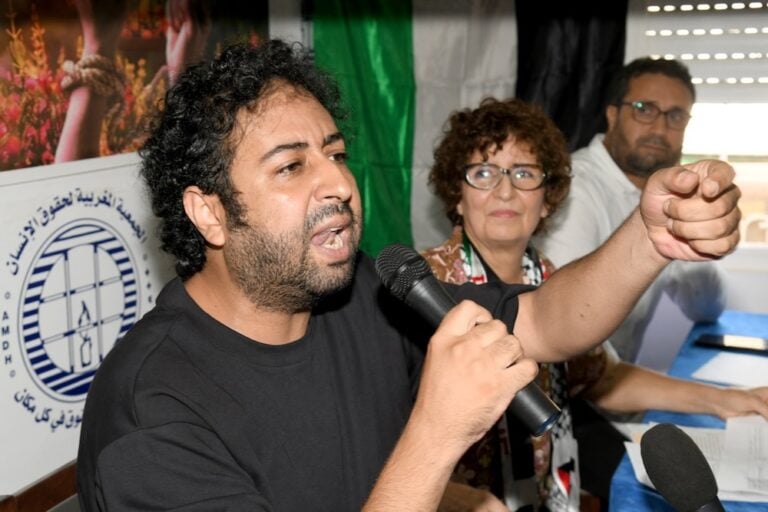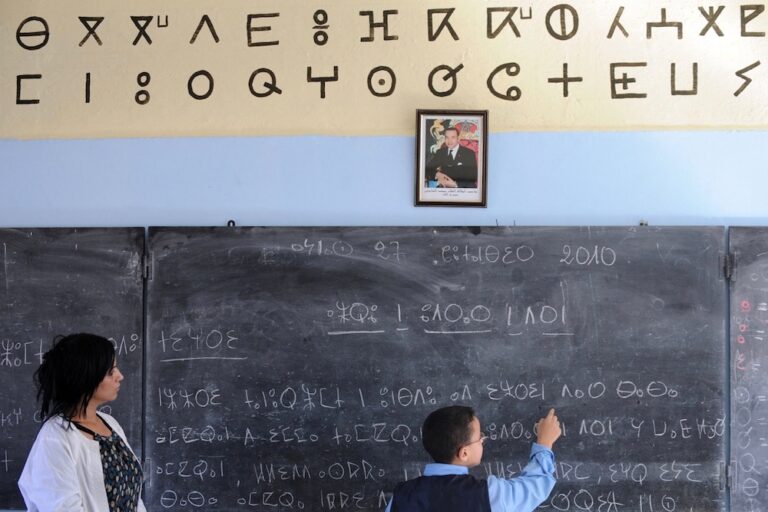(RSF/IFEX) – Reporters Without Borders said it was “shocked and appalled” by the eight-month prison sentence imposed by a Casablanca court on 15 August 2007 on Mostapha Hurmatallah of the Arabic-language daily “Al Watan Al An” for publishing a leaked internal security memo. He was convicted of “receiving documents obtained by criminal means.” The newspaper’s […]
(RSF/IFEX) – Reporters Without Borders said it was “shocked and appalled” by the eight-month prison sentence imposed by a Casablanca court on 15 August 2007 on Mostapha Hurmatallah of the Arabic-language daily “Al Watan Al An” for publishing a leaked internal security memo. He was convicted of “receiving documents obtained by criminal means.” The newspaper’s editor, Abderrahim Ariri, received a six-month suspended sentence on the same charge.
“This sentence displays contempt for international legal practice, which has repeatedly reaffirmed the position that journalists should not be imprisoned for press offences,” the press freedom organisation said. “We condemn the growing gulf between the government’s promises of democratisation and what it does in practice. This is the first time since October 2004 that a journalist has been sentenced to spend time in prison in Morocco, which now joins the club of North African countries – Egypt, Libya – that are holding journalists.”
Reporters Without Borders continued: “There are no grounds at all for imprisoning Hurmatallah. While we do not underestimate the gravity of the case, in which eight officers have been convicted, we find it particularly unacceptable that a journalist should be jailed as a result of a judicial procedure lacking in transparency.”
The organisation added: “The initial case was split into two – a military one tried behind closed doors and a civilian one leading to Hurmatallah’s conviction. This makes him out to be criminal, especially since he was tried under criminal law, and not the press law. A journalist should not be punished for doing his duty to report the news and for ignoring requirements that only concern state officials.”
Hurmatallah, who has been detained since 17 July, was immediately returned to prison to serve his jail term after the court issued its sentence on 15 August. He and Ariri were also each fined 1,000 dirams (approx.100 euros). The court’s declared grounds for imposing the sentences were not made public but were expected to be available soon.
Ariri and Hurmatallah were arrested by plain-clothes police in Casablanca three days after writing a series of stories for the 14 July issue that were headlined, “The secret reports behind Morocco’s state of alert.” One of the stories was based on an intelligence agency memo (published in the newspaper) which urged all the security services to be vigilant after a terrorist organisation posted a video online containing “a solemn call for jihad against all the Maghrebi governments,” identifying Morocco by name.
On 24 July, the prosecutor’s office released Ariri but transferred Hurmatallah to Okacha prison. When the first hearing in the trial was held two days later, the court ruled that Hurmatallah should remain in prison.


